About this guide

A member of staff or a carer can support you to read this guide. They will be able to answer any questions that you have.
About this guide
- This guide is for people who might have post traumatic stress.
- It will tell you what post traumatic stress is.
- It will tell you where you can go to get help.
What is post traumatic stress?
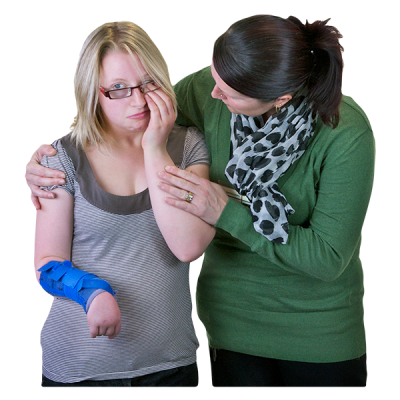
Post traumatic stress can happen when something has happened that was very upsetting or unexpected. This might be a friend or family member dying, having an accident or seeing someone get hurt.
This is sometimes called a trauma.
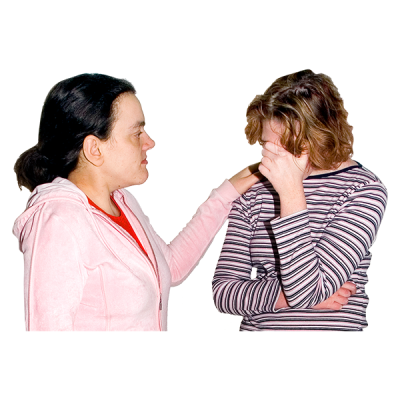
Post traumatic stress can make you very upset, sad or angry. It can be hard to get on with your life.
How might I feel?

Post traumatic stress can affect how you feel and how you behave. It’s different for everyone.
You might feel
- Worried, nervous or frightened.
- On edge or tense.
- Angry.
- Depressed.

Your body might feel different
- Your heart might beat fast.
- Your muscles might feel tight and achy.
- You might feel tired.

You might behave differently
- You might think about what happened lots.
- You might have problems getting to sleep.
- You might drink or smoke more than you would usually.
- You might find it hard to go to some places.
It is normal to feel these things after a trauma.
What can I do to feel better?
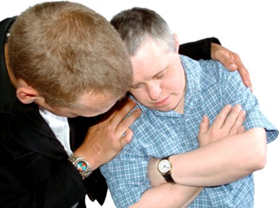
There are lots of things you can do to help you get over what has happened.
Get some help
There is list of places you can go for help in this leaflet.

Find out as much as you can about what happened
Sometimes understanding what happened to you can help you feel better. Talk to people about what happened, like a friend, or a listener.
Thinking calmly about what happened can help
Spending a little bit of time each day to think about what happened to you in a calm way. This can help you to be in control of the thoughts and memories.

Write or draw
Some people find it helpful to write down or draw the things they are feeling or the memories they have.

Relaxing can help
It is important to try and relax when you start to feel angry or irritable. Some people use music, do some exercise or watch TV to help them relax. The library might have some books or CDs to help you learn how to do this.
Things to try if you feel down

Think about what you would say to a friend if they were feeling down – how would you try to make them feel better?

Talk to people you trust. If you feel angry or down, you should talk to a prison officer or a listener who will be able to help you.
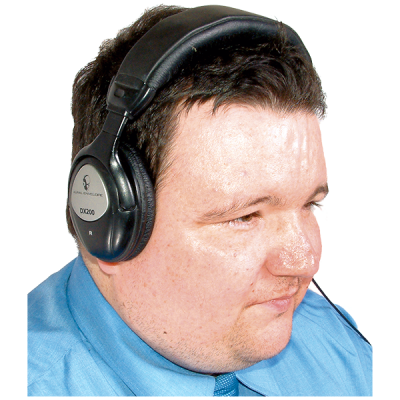
Relaxing can be a good way to stop the feelings of being stressed. You could try listening to your favourite music.
Make sure you don’t breathe too quickly as this can make you feel worse. Breathe slowly and deeply until the feelings start to go away.

Do some exercise. Try walking, skipping or running or whatever you would like to do. Try to work up to 15 minutes each day. This can help you feel better and less tired.

Try not to avoid thinking what happened. Thinking and getting upset can help you move on and feel better.
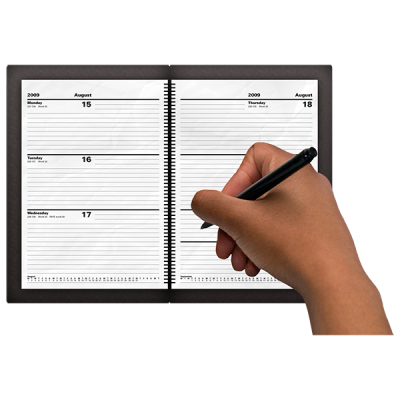
Some people find that they start to feel low or depressed after a trauma. If this happens to you, you could try to keep a diary of things you have done through the week and mark down which ones you enjoyed. This can help you think about the good things that are happening instead of the bad.
Where to get more help

The medical centre will help you if you need to take medicine to make you feel better.
There is a list of organisations that may be able to help. You on the next page.
Some people who can help you

MIND
Telephone: 0300 123 3393
MIND helps people who have depression and other mental health problems.

PACT – Prison Advice and Care Trust
Telephone: 0808 808 2003
PACT helps prisoners and their families.
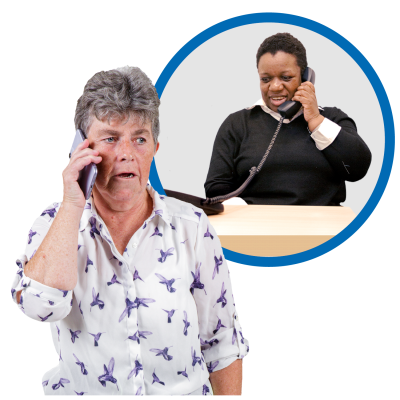
Partners of Prisoners and Families Support Groups (POPS)
Telephone: 0161 702 1000
POPS helps families of prisoners.
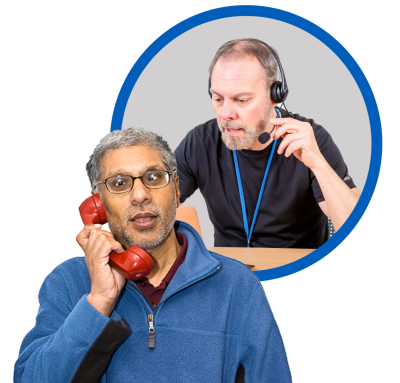
Prisoners Advice Service
Telephone: 0207 253 3323
PAS helps prisoners with their problems.
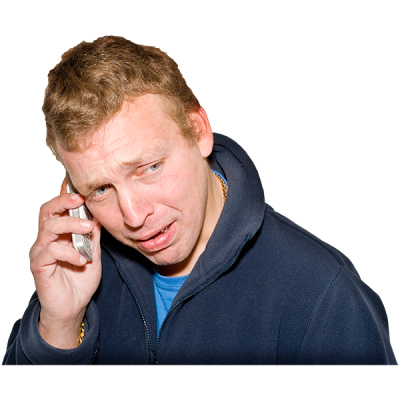
Samaritans
Telephone: 116 123
The Samaritans are a telephone helpline for people who are very unhappy or are thinking about hurting themselves. You can phone them to talk to someone. They won’t tell anybody what you say to them.
Acknowledgement

Easy Read version developed by:
- Skills for People, Telephone: 0191 281 8737
Skills for People is a registered charity no. 1069993 - Many thanks to prison listeners at HMP Northumberland who have contributed to the development of this guide
Adapted from Post Traumatic Stress - A self help guide for people in prison written by Lorna Cameron and Dr Lesley Maunder www.
Published by the Patient Information Centre
2022 Copyright, Cumbria, Northumberland, Tyne and Wear NHS Foundation Trust
Ref, PIC/736/0422 April 2022 V3
Review date 2025
 Print or download as a PDF
Print or download as a PDF